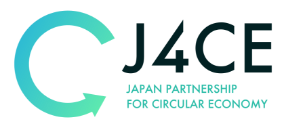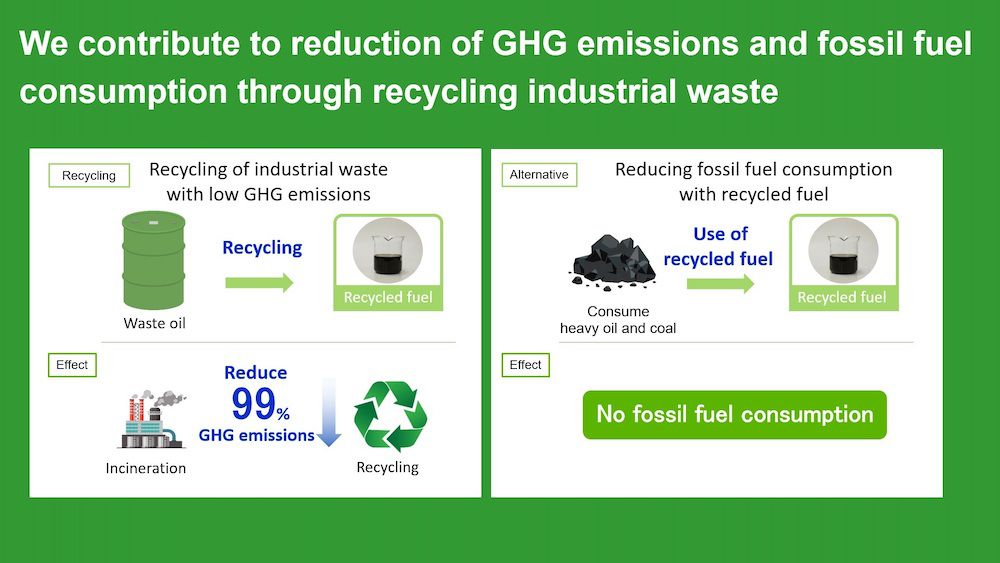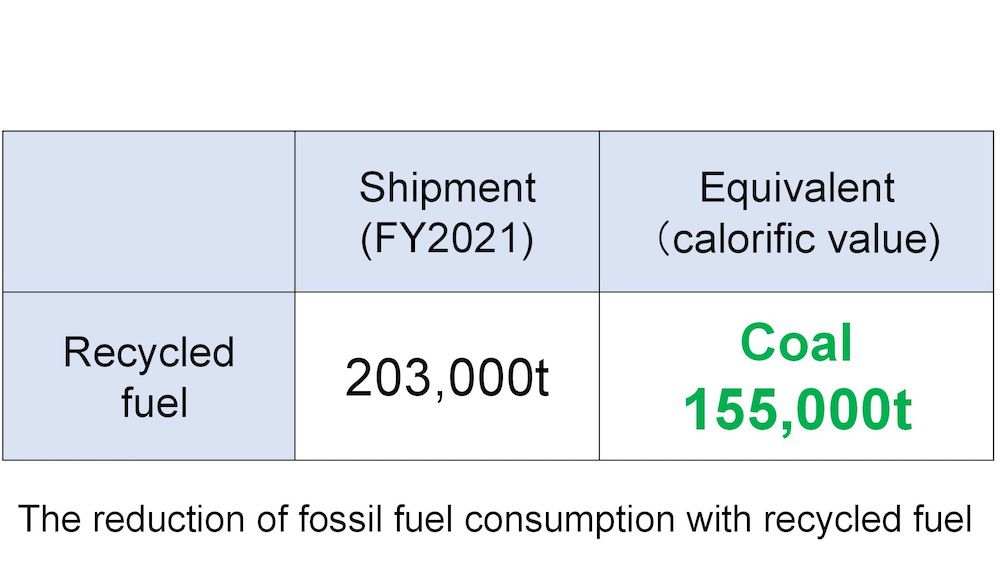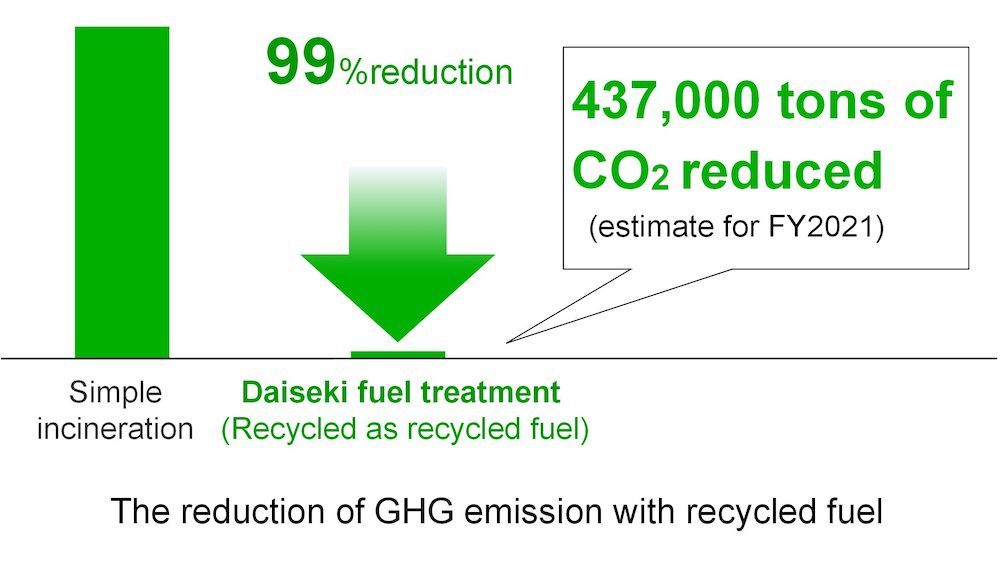Reduction of GHG emissions and fossil fuel consumption through recycling industrial waste
[Company / organization] Daiseki Co.,Ltd.
Time started
1994
Technology and business model
Our main business consists of the collection and transportation of industrial waste (such as waste oil containing waste solvent, waste acid, waste alkali, and sludge), intermediate treatment, and recycling. We recycle waste solvent into recycled fuel and sell it to cement companies, etc., and the cement companies use it as a substitute for coal. In this way, recycled fuel contributes to the reduction of fossil fuel consumption. According to the Japan Solvent Recycling Industry Association, the amount of used solvent discharged in Japan in fiscal 2011 was 1.75 million tons, of which 320,000 tons were recycled as solvents and fuel. The unrecycled portion emits a large amount of CO2 due to disposal such as incineration, so its treatment is an issue. We receive difficult-to-treat waste solvents, which solvent recycling companies could not recycle by distillation, remove impurities from the wastes, adjust the components to the standards required by cement companies, etc., and recycle them into recycled fuel.
Achievements and goals
In fiscal 2021, we received 130,000 tons of waste solvent and 76,000 tons of waste oil, recycled them, and shipped them as 203,000 tons of recycled fuel. This recycled fuel is equivalent to 155,000 tons of coal in terms of calories. By substituting for recycled fuel, we contribute to the reduction of fossil fuel consumption. In addition, by recycling this waste solvent, we reduce 437,000 tons of CO2, which is 99% of the emissions when incinerated. This means that we contribute to the reduction of SCOPE3 category 5 (waste) emissions of our customers.
Reference URL
https://www.daiseki.co.jp/english/csr/pdf/ESG%20Report%202021.pdf
- Reduce
- Reuse/Efficient use
- Recycle
- Production
- End-of-use
- Others
- Company in different category.
- Currently under implementation (already in business)




